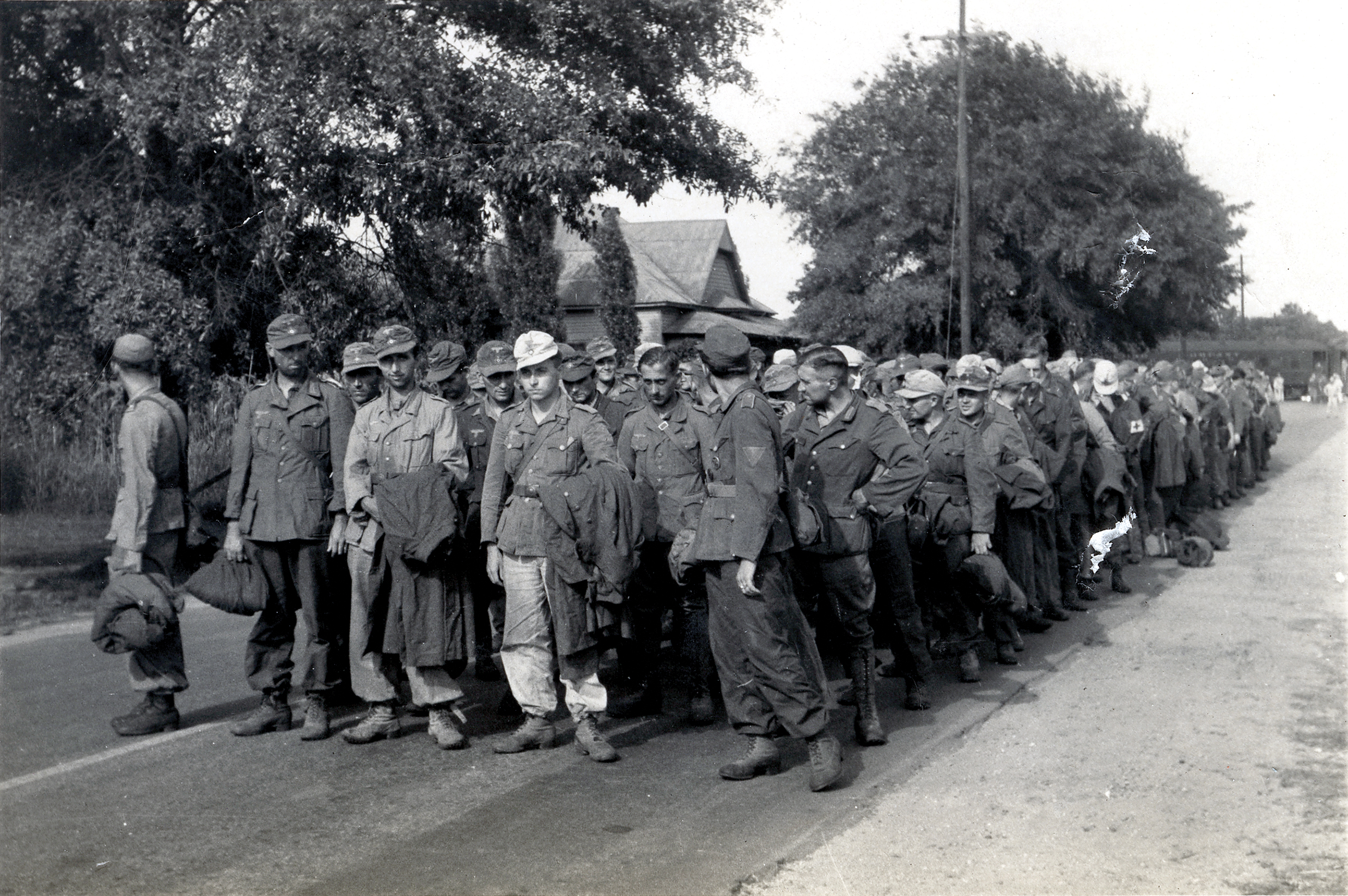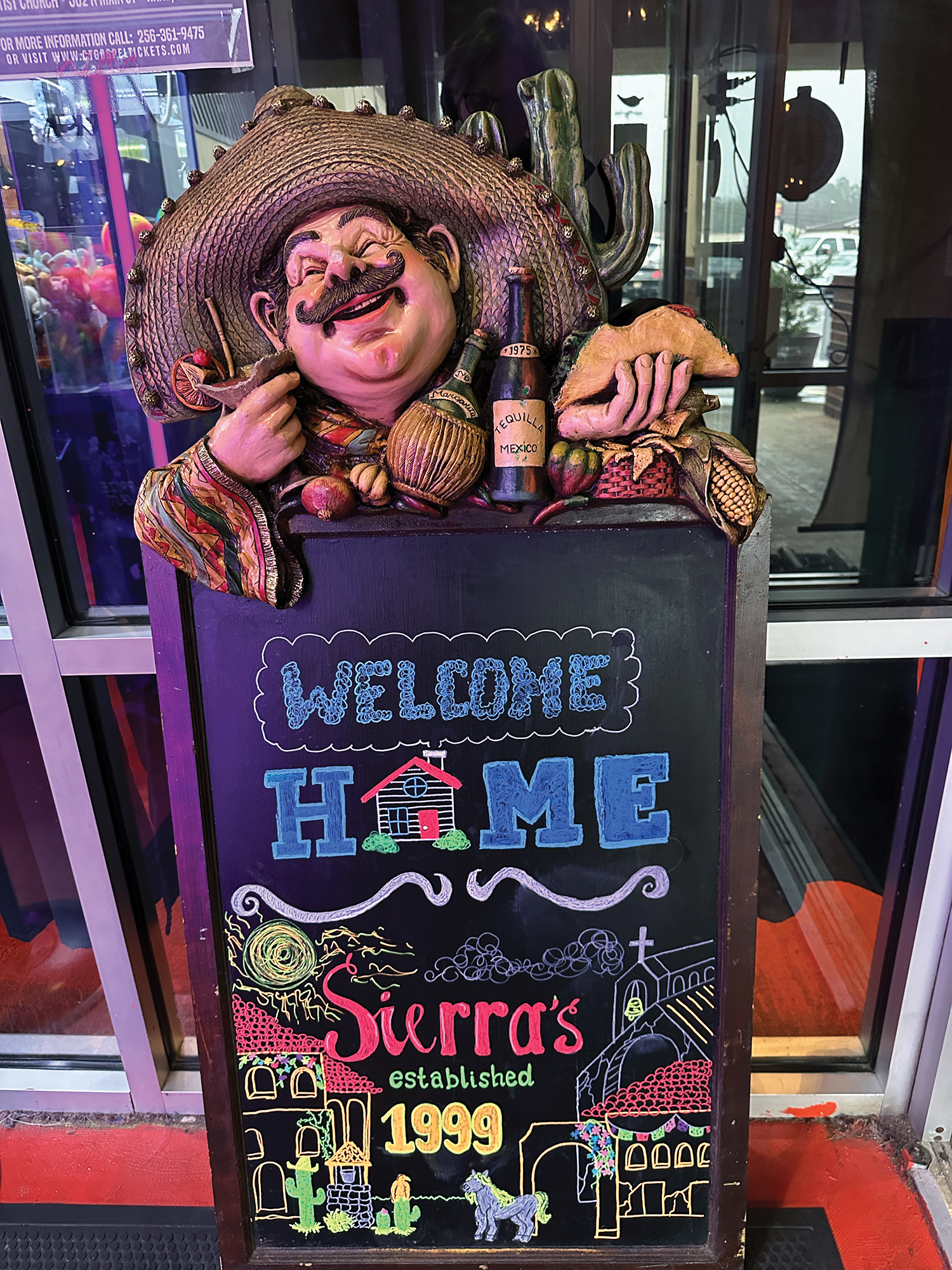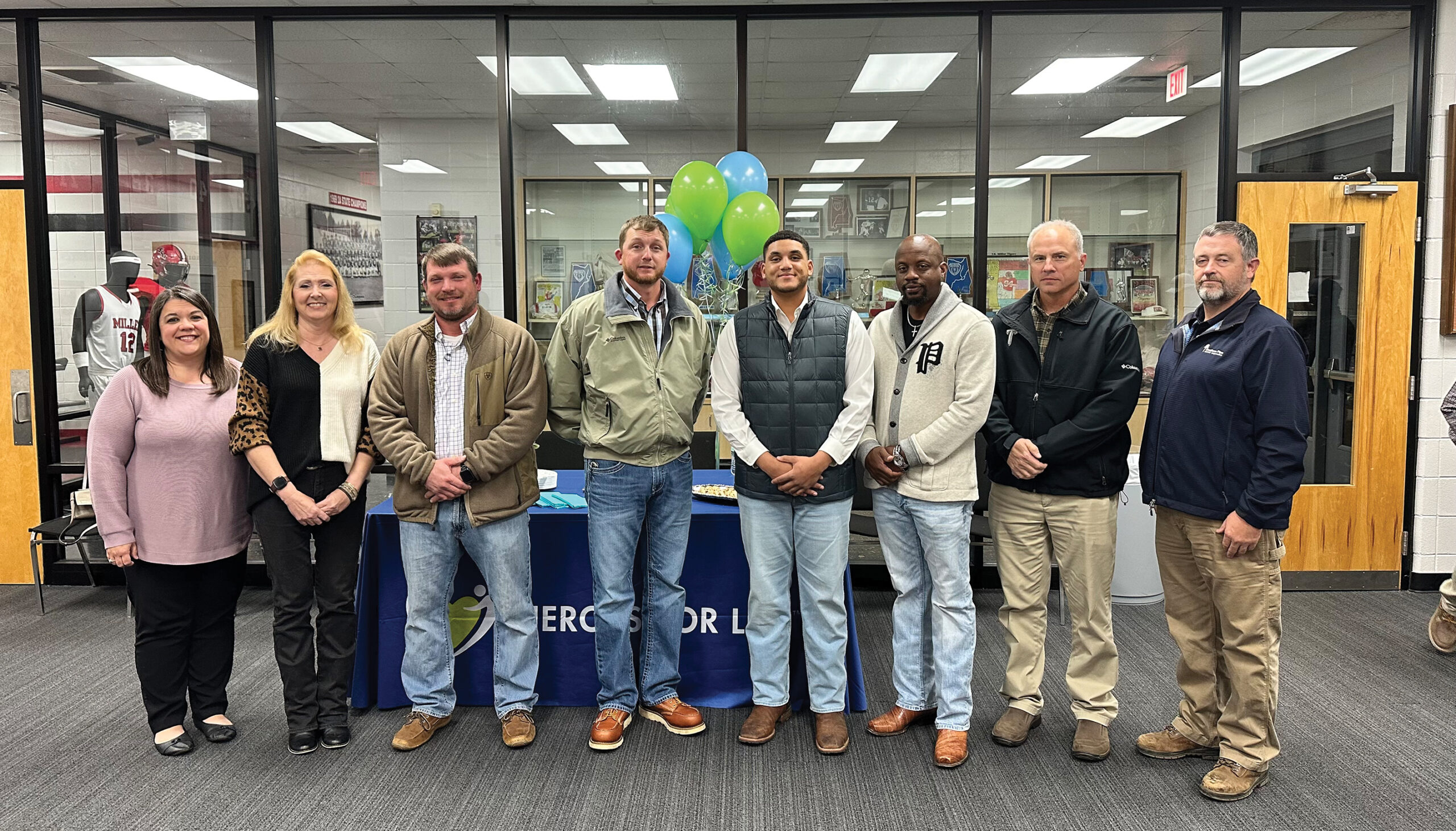Lawmaker builds on legacy of giving back, public service
By Allison Law
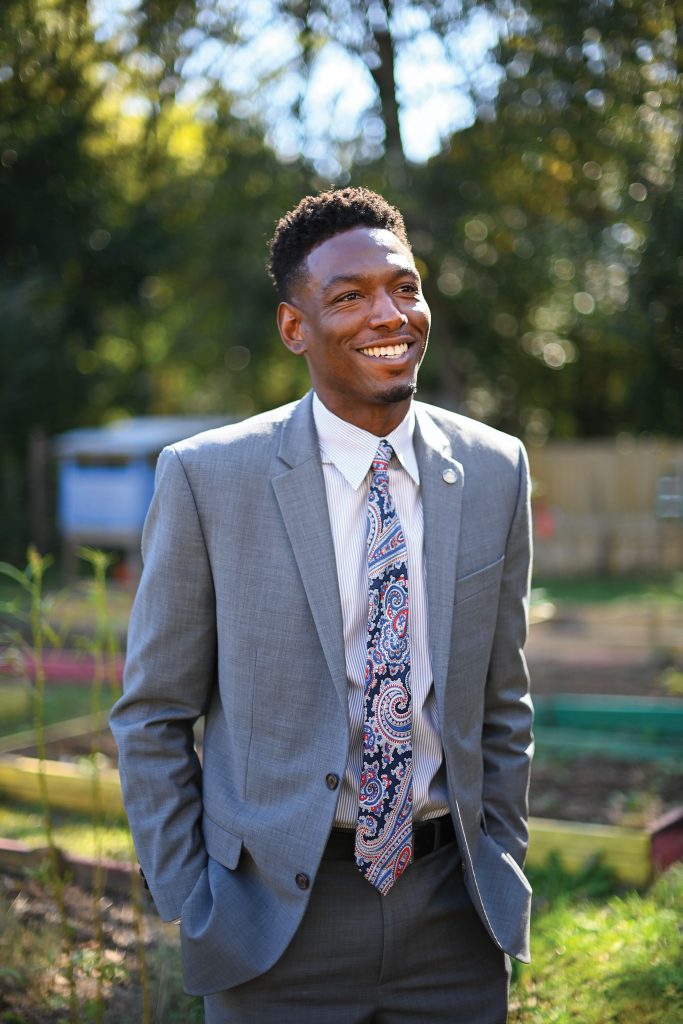
In March 2019, Jeremy Gray – former college and pro football player, business owner, budding community advocate – was preparing to enter yet another realm: state politics.
Gray was elected in 2018; his predecessor in District 83, state Rep. George Bandy, died earlier that year. The 2019 session was set to convene March 5. Gray, in his early 30s and one of the youngest members of the state House of Representatives, knew he had a lot to learn.
The lessons came at him hard and fast.
On March 3 – two days before the 2019 session – an EF-4 tornado with winds up to 170 mph devastated the area near Beauregard in Lee County, in the heart of Gray’s district. Twenty-three people were killed, with 90 people injured.
“If I was scared of anything, when that tornado hit my district two days before I went into session, any (fears), I didn’t have anymore. I was literally on the ground working, in helicopters trying to help people, doing interviews, trying to raise money, trying to just find ways to really help Lee County.”
It put him in contact with several of his fellow legislators, who he didn’t know but who reached out to help; he quickly learned who the major players were. And minority leader Anthony Daniels had already asked him to serve as a whip, which gave him an immediate hands-on lesson in the workings of the Legislature.
“If I was going to be a little timid or shy, I didn’t have the opportunity to be.”
Leaving home
Gray grew up in Opelika, in a community that he recalls was a true community. Adults didn’t have to walk kids to school; the watchful eyes of church members, business owners and older relatives were enough to keep everyone safe.
His athletic talents were evident early on, and he played baseball and basketball as a kid. In middle school he found football, and he later became a three-sport athlete in track, football and basketball at Opelika High School.
His mom kept him busy with sports, knowing it would help keep him out of trouble. But she made it clear that to play, he had to do his schoolwork. “You had to get your education, but you also had to perform and stay out of trouble,” he says.
His dad played football at Auburn University in the mid-80s, and it was almost a given that Gray would follow and play for Auburn. But he was recruited by other Southern schools, including North Carolina State University in Raleigh. He fell in love with the area, “because it was much different than anything I ever saw. Diversity, people, just the environment, the players.” And as a 6-foot 3-inch cornerback, the team’s style of defense played to his talents.
His mother and the Auburn coaches were disappointed that the hometown kid chose to leave, but he says it was “a gut feeling.”
“When I think about me being a very shy child, not really wanting to speak, an introvert, I think (going to NC State) really blossomed my personality,” he says. “When you have a big family, it’s hard to say you’re on your own, right?”
He excelled on the field and was a two-year starter for the Wolfpack. He earned a degree in sports management, with the idea that if he didn’t play professionally, he would work in recreational sports.
After graduation, he played Arena football and Canadian football for a few years, and worked out for the Cleveland Browns. But football, he says, is “a short part of your life.”
A life of health and wellness
He returned to Opelika and started Elevate Your Grind, a for-profit sports training business. He conducts boot camps and trains young athletes looking to get a leg up on their competitors, but frames it in a bigger-picture kind of way. “It’s kind of like a lifestyle. It’s a community. It’s health. It’s wellness. It’s sports. It’s being a better you.”
He started a health and wellness class at his church, and spoke to corporate employees. “I was kind of like a health and wellness crusader, right?”
When he decided to create a non-profit to give back, it made sense to marry his message of health with community advocacy. His non-profit Curtis House had its genesis while he was involved with the Opelika Chamber of Commerce’s 20 Under 40 program, which helps develop young leaders. His classmates agreed to help him get the Curtis House off the ground as part of their service project.
The Curtis House is built on land once owned by Gray’s great-grandfather, Lottie B. Curtis, in Opelika. Curtis was a World War II veteran, church deacon and sharecropper, but above all was a community servant, Gray says.
The current structure was constructed as a house, and was built with details that honor Curtis’ memory – like the raised bed gardens in the side yard (the vegetables grown are given away to the community), the rocking chairs on the front porch and the pavilion in back, where Curtis worked on cars. But this new structure is also a working space that serves many purposes.
It’s a “resource hub,” Gray explains. Free legal services are provided there twice a month. It hosts a mentoring and tutoring program for K-12 students. Once a month is wellness weekend, with a 1.5 mile walk/run and healthy food distribution. Festivals celebrate the holidays while feeding the needy. In the works is a partnership with the city to create a second chance program to help at-risk kids transition from troubled pasts to the workforce.
“It’s the Curtis House, but it’s really the community’s house, right? Anyone can come here who needs help. Kids come over here all the time to hang out. We just want this to be a safe haven in the community.”
It was the process of getting the Curtis House off the ground that sparked his future in politics. Gray didn’t understand city planning or zoning, and even though he grew up in Opelika and knew a lot of people, he was constantly seeking answers.
“Through that process, it really prompted me to want to run for office because I felt like I had a great idea, but no one understood it.” He couldn’t find anyone his age who could really help him or was in a position of authority, and felt that the area needed someone to run for public office to be a real liaison to the community.
“So I wasn’t looking for politics. It was more like a calling, right? It was just a need, and I just wanted to be that person to actually show people that you could do anything. And it was scary because I really don’t like to talk like that, and I don’t really like to kind of put myself out there.”
Gray had talked with Bandy, his predecessor, but felt that after Bandy died, “maybe that’s a sign that I’m doing what I’m supposed to do.”
Gray came in second in the Democratic primary in 2018 (“The ego side of me said I was going to come in first place, because I’m used to winning,” he laughs). He kept working and rallied his supporters, and won the run-off with 54 percent of the vote. He easily defeated his Republican opponent in the general election.
Then, the real work began.
At the State House
Since he became a legislator, Gray has cultivated a rapport with members on both sides of the aisle. Part of it is his affable nature, but he knows the political reality as well: His district is Democratic, but he’s surrounded by Republicans, and Lee County itself trends Republican. Being in the minority party means that forging relationships with the other side is critical to getting any business done at the State House.
His sports background has been a huge help. “Sometimes sports in Alabama is just a relationship builder,” he says. But it has also taught him not to take things personally. “We battle sides. We battle people that we know … We try to put our force on them and our will, but at the end of the day, there’s this thing called sportsmanship, right? You shake hands. You go out to eat and build camaraderie.”
He’s good at understanding the political mindset, he says, “but outside of it, I’m just going to really be a down-to-earth person.”
Another point in his favor: He really is a hometown kid. “(Republican State Sen.) Randy Price’s son and I were on the same football team, right? So I have a relationship outside of politics where people, if (they) ask about me, they know me in a different light.”
Part of that different light for Gray is his commitment to good health. The life of a legislator is not generally one of wellness; anyone who’s worked around the State House knows that legislators are constantly being wined and dined, invited to countless receptions and dinners from groups looking to curry favor or say thank you.
For Gray, that’s been a constant battle. For seven or eight years he’s been a vegan (he doesn’t eat meat or dairy), and he and a couple of other legislators work out every morning at a Montgomery YMCA during the session. In addition to being a personal trainer with his business, he’s taught all levels of fitness classes. And he’s an avid practitioner of yoga.
Even if you don’t follow Alabama politics, you’ve probably heard about “the yoga bill.”
That was Gray’s doing.
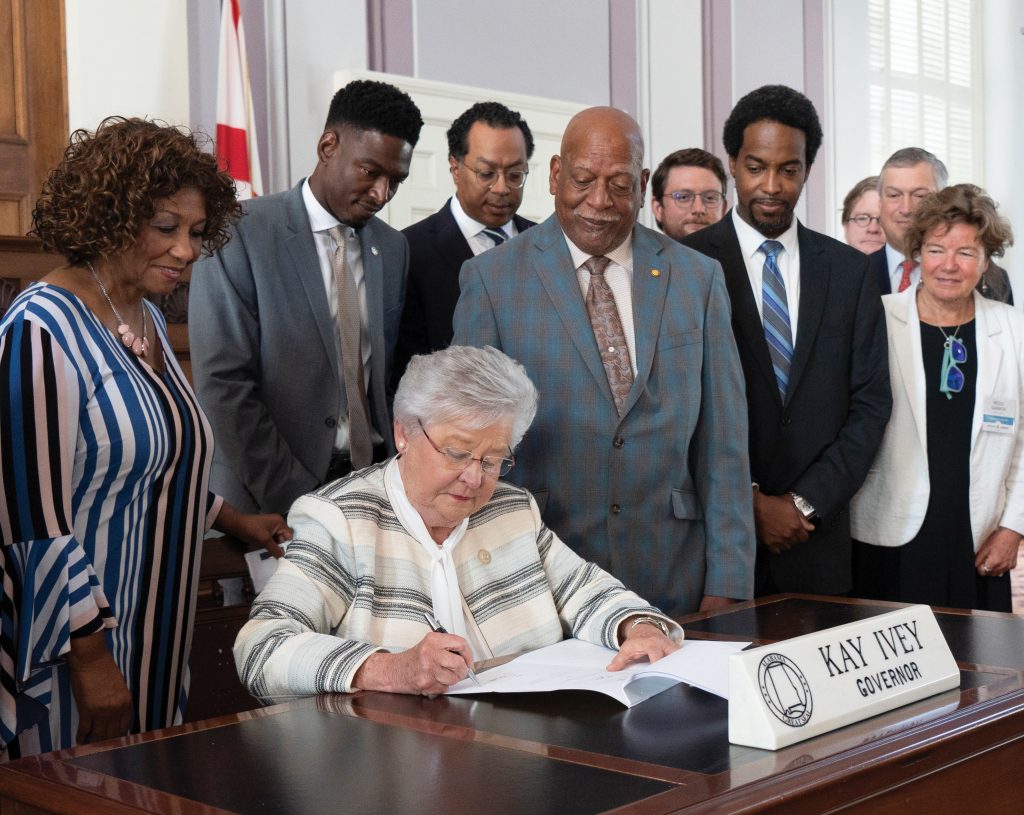
Looking for innovation
For three years, Gray introduced a bill to end Alabama’s ban on yoga in schools that was adopted by the state Board of Education in 1993. His bill finally passed in 2021, and Gov. Kay Ivey signed it into law. The bill allows schools to offer yoga as an elective class or activity, and is limited to poses, exercises and stretching techniques.
Gray told al.com at the time that yoga can help children with their mental health, clarity, stress relief and concentration. It does not allow chanting or mantras or religious instruction.
Media outlets around the world ran stories about the law, and Gray was interviewed on MSNBC’s “All in With Chris Hayes.”
While that may have been Gray’s introduction to much of the state, he is also proud of the work he’s done as a member of the Alabama Innovation Commission.
That statewide group was created by Gov. Kay Ivey in 2020 to focus on entrepreneurship, innovation and technology. The group brought together private sector experts and state policymakers to develop policies to support job creation and workforce development.
Two bills came out of the commission, both of which Ivey signed. Gray sponsored HB609, which would create the Innovate Alabama Matching Grant program to promote research and development. (The other bill, HB540, sponsored by Rep. Bill Poole, establishes the Alabama Innovation Corporation, which would primarily be charged with making Alabama a hub for technology and innovation and supporting activities and initiatives that enhance this growth.)
“We also have to have an education portion, where we’re actually helping kids excel in science and math,” Gray says. And that includes recruiting more science and math teachers, especially in rural areas.
Perhaps because of his youth – Gray is 36 – he felt very attuned to the goals of the commission, especially in terms of how the state can attract and retain young, forward-thinking people, who have grown up with technology and don’t know life without it. He sees the need to cultivate young people who want to build ideas in the technology and business spaces in Alabama.
“We need those professionals to really guide us and direct us on what will really help Alabama move forward in technology.”


